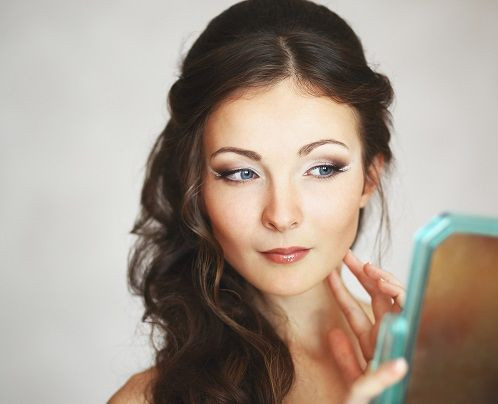Attractive People Feel Powerful, In Higher Social Standing: Why That's Not Necessarily A Bad Thing

Split ends, messy bangs, knots. Many a woman has complained at one time or another about their messy hair. Somehow, a bad hair day turns into a bad day full of unfortunate events. Taking pride in our appearance is natural — it feels good to look good. But there’s more to it, according to a new study, which found that feeling attractive made people — both women and men — feel like kings and queens, as if they belonged in a higher social class.
It makes sense. In a world that values not only “wealth, education, and occupational prestige,” but also physical beauty, feeling like you fit that mold can foster a mindset (at least for that day) that you’re better than the rest. And all it takes is making sure to not mess up your sideburns while shaving. “These small changes can give me an edge,” said Professor Margaret Neale, of the Stanford University Graduate School of Business, in a press release. “My perception of my look matters. That could have an impact on how I present myself.”
In a series of five experiments, participants were asked, among other things, to describe their overall feelings about their attractiveness and attitudes about inequality and hierarchies; to write about a time when they felt attractive and unattractive; and to either agree or disagree with certain statements, which included: “Some groups of people are simply inferior to other groups,” and “Lower wages for women and ethnic minorities simply reflect lower skill and education level.”
Participants who tended to view themselves as more attractive were also the most likely to feel that they were not only part of a higher social class but also that people at lower levels of a hierarchy are there because they deserve to be. “What’s surprising is that we find that most people seem to endorse hierarchy when they think they’re attractive and oppose it when they think they’re not,” doctoral student Peter Belmi said in the release. “Why would people’s stance on inequality shift so quickly depending on whether they think they are attractive?”
Feeling attractive may only be one reason. Other research from Belmi found that people were still likely to spend money on making themselves look better — beauty products, cosmetic surgery, and the like — even during tough economic times. Feeling attractive could have a trickledown effect on people, also making them feel successful, economically stable, and confident, if only temporarily. Nevertheless, these feelings aren’t always bad. A July 2013 study found that people who felt powerful — even though those in this study were primed to feel that way — before going into a job interview were more likely to get the job.
With the malleability of people’s perception on beauty and hierarchical standing, it probably isn’t a bad thing that people feel more powerful when they're having a good-looking day. Their feelings about inequality will balance out the next day, when their hand accidentally slips on the razor.
Source: Belmi P, Neale M. Mirror, mirror on the wall, who’s the fairest of them all? Thinking that one is attractive increases the tendency to support inequality. Organizational Behavior and Human Decision Processes. 2014.



























